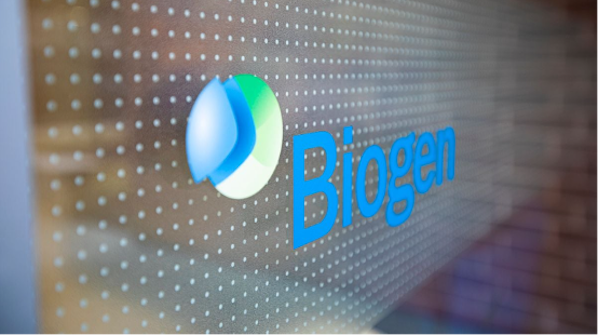Biogen’s new strategy brings more pipeline cuts, but leaves deal options open
April 27, 2023
Source: drugdu
 453
453

Biogen has stopped or paused several drug programs as part of a larger effort to cut costs and prioritize certain research.
The decision, disclosed Tuesday in the company’s latest earnings report, comes as sales of its marketed medicines for brain and nervous system disorders continue to fall. Biogen recorded $2.46 billion in total revenue between January and March, a 3% decline from the same period a year prior. Revenue was down across most business segments, with the company’s flagship multiple sclerosis franchise taking the biggest hit, decreasing by 19%.
Christopher Viehbacher, the former chief executive at Sanofi and the recently minted CEO of Biogen, is now trying to reshape a research and development organization that, for many years, revolved around high-risk, high-reward neuroscience programs. ““Having a few of those projects in our pipeline is good,” he said in February, “having 100% ... is challenging.”
On Tuesday, Biogen said it will no longer be developing a drug called BIIB093, which was in mid- to late-stage human testing as a potential treatment for brain contusions and a severe kind of stroke. The company said the program’s termination was due to “due to operational challenges and other strategic considerations.”
Biogen is also discontinuing work on BIIB132, an experimental medicine for a rare neurodegenerative disease known in short as SCA3, and mulling whether to start a mid-stage clinical trial that would evaluate another of its drugs, BIIB131, in patients with acute ischemic stroke.
More broadly, Biogen said it has exited research into eye diseases and is “refocusing” investments in gene therapy. In 2019, the company inked one of its biggest deals to date, agreeing to acquire Nightstar Therapeutics — a gene therapy developer targeting eye conditions — for $800 million. Since then, multiple Nightstar programs have failed key clinical trials.
Priya Singhal, Biogen’s head of development and interim head of research, said during a call with investors Tuesday that the company is “looking at every program in great depth, several times over, and thinking about what are the options, what are the operational and strategic and regulatory challenges, but also the opportunities.”
“It’s an integrated view of where we believe our resources will be better applied to other programs in our portfolio currently,” Singhal added. “That is, I would say, the common denominator across all the decisions that you’re hearing from us today. We believe that we should be spending time elsewhere.”
These decisions extend the list of scrapped drugs from Biogen’s pipeline. Last year, the company shelved experimental drugs for Alzheimer’s disease, ALS and schizophrenia-associated cognitive impairment. Then, in February, it said two more programs — one for neuropathic pain, another for multiple sclerosis — would be terminated.
Biogen executives say they’re trying to diversify the company’s research by investing in areas outside of neurology, including immunology, rare disease and neuropsychiatry. In the first three months of this year, Biogen spent $571 million on R&D. And over the course of last year, it recorded more than $2.2 billion in R&D expenses.
Though the company is culling its own programs, more may be added through deals. At Sanofi, Viehbacher oversaw the $20 billion purchase of Genzyme. And in his new role, he’s expressed openness to growth via mergers and acquisitions. Just this month, Biogen appointed a new head dealmaker, Adam Keeney, who previously held business development positions at Genzyme and Johnson & Johnson.
“Biogen hasn’t necessarily looked at acquisitions as part of its growth strategy,” Viehbacher said earlier this year. But, “I tell people, ‘Well, there wasn’t a lot of point hiring me if you don’t want to go do deals.’”
On Tuesday’s call, analysts questioned the CEO on his appetite to do M&A, to which he said “you could certainly look at some tuck-in acquisitions on the rare [disease] side.”
Viehbacher also said his team would “be more inclined to find something that is revenue generating in the near term,” due, in part, to the continued declines expected for Biogen’s multiple sclerosis business.
The company does expect a significant sales bump in the future from its new-to-market treatment for Alzheimer’s disease, Leqembi, as well as a closely watched depression drug that could be approved this summer.
While Leqembi is attracting interest from Alzheimer’s patients and doctors, its sales have yet to outpace commercialization costs. Biogen recorded an $18 million revenue loss in the first quarter from Leqembi and the company’s other marketed Alzheimer’s therapy, Aduhelm.
In January, the Food and Drug Administration granted Leqembi “accelerated approval,” a type of conditional clearance that has allowed insurers to strictly limit its use. But Biogen as well as analysts expect sales to significantly increase should the medicine secure a full approval, which could happen by or before early July.
Reference: https://www.biopharmadive.com/news/biogen-drug-pipeline-cuts-deals-acquisitions/648557/
By editorRead more on
- Rovaxitinib approved for marketing, filling the demand for myelofibrosis treatment March 2, 2026
- Warrant Pharmaceuticals’ active pharmaceutical ingredient receives Brazil’s first official GMP certification March 2, 2026
- Merck’s New Story March 2, 2026
- Rongchang Biotechnology has turned a profit! March 2, 2026
- Jiuyuan Gene’s “Simeglucopyranoside” for weight loss (Jikeqin®) has been submitted for market approval March 2, 2026
your submission has already been received.
OK
Subscribe
Please enter a valid Email address!
Submit
The most relevant industry news & insight will be sent to you every two weeks.



